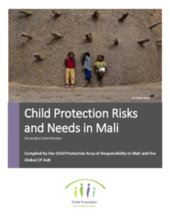Displaying 471 - 480 of 1090
This article presents Multisystemic Therapy for Child Abuse and Neglect (MST-CAN), an ecologically based treatment for families experiencing physical abuse and/or neglect in which research-supported mental health services are delivered in the home by one clinical team to families who have serious clinical needs.
This study seeks to assess the impact of economic factors on sexual, emotional, and physical violence on Nigerian children and adolescents aged 13–24 years.
This article presents results from an investigation of the socioeconomic predictors of physical child punishment using three rounds of the Multiple Indicator Cluster Survey (MICS) in a lower middle-income country, Viet Nam from 2006 to 2014.
The objective of this study was to test whether childhood maltreatment was a predictor of (1) having low educational qualifications and (2) not being in education, employment, or training among young adults in the United Kingdom today.
The objective of this evaluation was to provide evidence that can help strengthen performance and accountability with UNICEF’s work with the Royal Government of Cambodia and the myriad other authorities and organizations involved in child protection.
The objective of this evaluation was to provide evidence that can help strengthen performance and accountability with UNICEF’s work with the Royal Government of Cambodia and the myriad other authorities and organizations involved in child protection.
This review of secondary sources refers to information on child protection risks and violence against children in Mali, collected from 2016 to 2018.
This presentation can be used concurrently with Kent University's simulation course, it presents a case study that allows students to engage in the complex topic of child neglect.
On 29 August 2018, the Save the Children Child Protection Global Theme hosted a webinar entitled: Researching Violence Against Children: An Overview of Ethical Considerations.
In the current study, several assessments for attachment disorder symptoms are used within a German sample of foster children after being exposed to neglect and maltreatment in their biological families.





